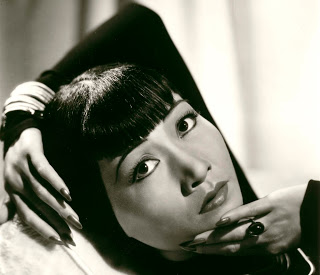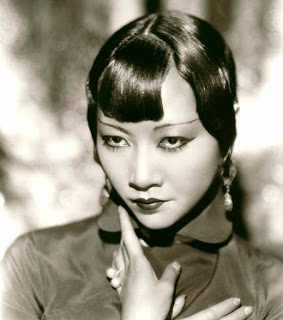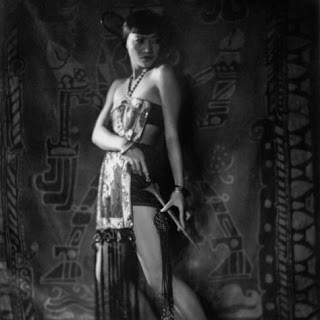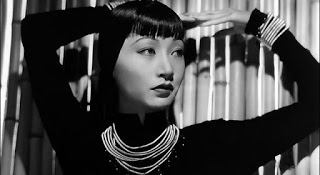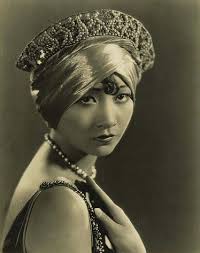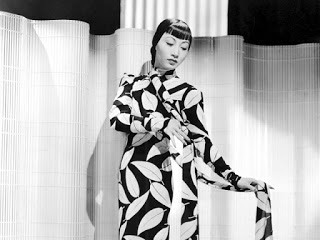Anna May Wong: Frosted Yellow
Willows
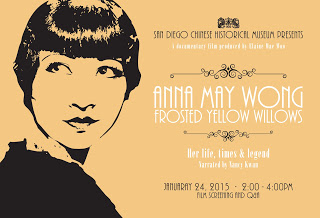
Director: Elaine
May Woo
Year: 2007
Rating: 6.0
This 50-minute documentary explores the life of the first major Asian film
star who as the years have passed since her death has only gained in recognition.
Though the telling of her life often revolves around the disappointments
and the racial discrimination that very much hindered her career, her life
still strikes me as a life well lived - quite remarkable in what she did
and the places she went. She is wonderful to watch in the films she made
during the silent era up to the early 1930's - a face that just dominates
the screen with exoticism (to Western audiences) and flirtatious sexuality.
Sadly, the vast majority of her films are not available on DVD as far as
I can tell.
Anna May Wong was born in 1905, a time in which the Chinese in particular
were singled out in immigration laws allowing very few to immigrate and those
who were here had to register. But her grandfather had come to America during
one of the gold rushes and his son Sam was to open a laundry in Los Angeles
and he and his wife had eight children including Anna May - but her Chinese
name translates to Frosted Yellow Willows. It wasn't exactly a great time
for Asian actors either, but Anna fell in love with the movies growing up
and went for it. First as an extra in crowd scenes, then at 14 years old
with a small role in Alla Nazimova (1919) and in 1921 she played the wife
to the great actor Lon Chaney in Bits of Life.
Her first starring role came in The Toll of the Sea in 1921, a Chinese version
of Madame Butterfly shot in two-color technicolor. Ironically over the next
few years she got parts portraying Native American Indians, Eskimos, Latinas,
Mongols (The Thief of Bagdad with Fairbanks), Middle Easterners and of course
lots of Asian roles. But not many of them amounted to much and were not what
she wanted - often stereotyped minor roles. The she got her break - not in
America but in Europe where at the same time black musicans were getting
better opportunites to play than back home.
A German director brought her over for the lead role in Song (1928), Pavement
Butterfly (1929) - then to England for Piccadilly (1929) and the Flame of
Love (1930). The Flame of Love was released in three different versions -
in English, German and French - Anna May Wong played the same character in
all three as she had become fluent in German and French while there. No Chinese
version which she spoke as well of course. She was a huge celebrity in Europe
at the time. The toast of the Continent as they say.
This was the best period of her career - she came home finally to see her
family, act in a Broadway play and then signed a contract with Paramount
for three pictures. Her first was the Daughter of the Dragon - the daughter
of Fu Manchu - a reasonably entertaining film but falling squarely into Dragon
Lady territory. Her next film was as a co-star to Marlene Dietrich in the
classic Shanghai Express where she plays . . . a prostitute. Much of the
rest of her American films were B films - she went off to England once again
to star in Chu Chin Chow (1934) which sounds awful but has a good reputation.
When Japan invaded China in 1936 she began to devote much of her time to
raising funds for them and lobbying for American help. She made two low budget
propaganda films in 1942 extolling the courage of the Chinese - Bombs Over
Burma and Lady from Chungking. She didn't act in films again until 1949 (age
discrimination now being added to ethnic discrimination). After that her
health began to fail and she did very little. She passed away in 1961 at
the age of 56.
This documentary narrated by Nancy Kwan relates all this and has some stunning
pictures and film clips of Anna May Wong.


